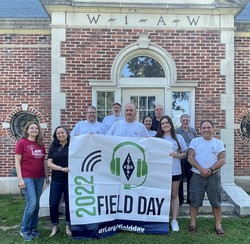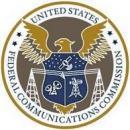 July 19, 2022 Editor: Michael Walters, W8ZY | |
Field Day 2022 Another Field Day is in the logs, Club Grant Program Update The application period for the ARRL Club Grant Program closed on June 30. We've received 128 applications for grants made by clubs from across the country. Some of the grants are quite elaborate and many are quite simple. FCC Legacy CORES System Has Been Retired The Federal Communications Commission (FCC) retired the Legacy version of its COmmission REgistration System (CORES) on July 15, 2022. CORES is the FCC's public-facing database that enables and tracks certain types of FCC and FCC applicant actions, including amateur radio applications and licenses. Its implementation has enabled routine amateur applications and licenses to be issued overnight instead of over weeks, as was the case with earlier methods. The updated version of CORES is now available. In essence, CORES is designed to identify those who hold certain types of FCC licenses and FCC authorizations, including amateur licenses, and organize them in an easily accessible manner under a common FCC Registration Number (FRN) regardless of whether one holds a single such authority or thousands. The new CORES, in addition to assigning individual FRNs, allows holders of multiple FRNs to aggregate them under a single account where the licenses and authorizations, fees and payments, and related actions can be administered from within the same account. In effect, new CORES can be conceptualized as an electronic interactive file folder. The updated version of CORES has been available since 2016, and its use is now mandatory for all amateur licensees when submitting amateur-related applications. The Legacy CORES website now re-directs users to the Commission's updated CORES site. Although some functionalities in the old system will continue to work for a short time, the FCC has urged all users to transition to the updated CORES system to take advantage of its enhanced security and functionality. Register with the FCC Licensees that do not already have an FCC CORES Username Account must create one with a unique username (a valid email address) and password. After creating the account, when logged in, users should associate their existing FRN or FRNs with this account. Instructions for doing so are on the FCC Registration Help web page. One's FRN is printed on all current amateur applications and licenses, and will not change. FRNs can also be found by looking up one's call sign in the Commission's ULS (https://wireless2.fcc.gov/UlsApp/UlsSearch/searchLicense.jsp) or by using the FCC's Advanced Search web page. The FCC has posted tutorial videos to assist with the transition. ARRL VEC Manager Maria Somma, AB1FM, recommends viewing "Getting Started With the New CORES," which explains how to register for a CORES Username Account, and "Associating an FRN to a Username," which instructs Legacy CORES users on how to link one or more existing FRNs to a username. FCC CORES Registration Instructions can also be found on the ARRL website. Additional information is available on the FCC website or by calling the FCC Licensing Support Center at 877-480-3201, Option 4, and on the FCC's e-support web page. QST is Now Offering a Column for Clubs ARRL invites you to be part of "Club Station," the newest column in QST. This column, written by clubs, for clubs, is a designated space to share specific and practical ideas about what has contributed to successful clubs to help others grow and thrive. In each issue, a different club will share how they undertook a specific activity or project, how and why it was successful, and any challenges they may have had to overcome throughout the process. Some examples include successful community club projects, creative ways to attract new members, or getting youth involved with ham radio. Additionally, many clubs across the country are being creative in meeting the challenges of COVID-19 to figure out how to keep club members active and enthusiastic. If your club has developed a creative way to get around common challenges, we want to hear from you! In order to help you tell your story, we have published a new version of the ARRL Author's Guide that is geared toward "Club Station," and includes a club profile form. Both of these documents can be found here. You don't have to have writing experience to be published in QST, and if your submission is accepted, our editorial staff will work with you to get your story ready for publication. All clubs are welcome to participate. For more information about what to expect from this new column, read "Welcome to QST's Club Station" in the August issue. If you have any questions, contact us at [email protected]. We look forward to hearing from you and hearing your story! Submitting Info for this Newsletter ARRL Club News is for radio clubs to show how they are working in the community and the hobby to advance amateur radio. If your club completes a project, supports an event, does an EmComm activation, or activates a park, we want to hear about it. You can submit your newsletter article to us at [email protected]. We like to get them as text or Word files instead of PDFs. If you have pictures, please submit them with caption information, as well as the name and call sign of the photographer. We want to highlight the good work being done by clubs and show others in the community. Think of this as a chance to show off your club and your programs. How to Plan and Apply for an ARRL Hamfest or Convention If your amateur radio club is planning to host a convention, hamfest, tailgate, or swapfest, please consider applying for an ARRL-sanctioned status for your event. To learn what it means to be an ARRL-sanctioned event, and to get some ideas on how to prepare for and conduct a hamfest or convention, visit www.arrl.org/arrl-sanctioned-events. To apply for an ARRL-sanctioned status for your event, log in to www.arrl.org/hamfest-convention-application. The ARRL Hamfests and Conventions Calendar can be found online at www.arrl.org/hamfests. In addition, the "Convention and Hamfest Calendar" runs in QST each month and also presents information about upcoming events. Important Links ARRL Home: www.arrl.org Find an ARRL Affiliated Club: www.arrl.org/clubs Find your ARRL Section: www.arrl.org/sections Find a license class in your area: www.arrl.org/class Find a license exam in your area: www.arrl.org/exam Find a hamfest or convention: www.arrl.org/hamfests Email ARRL Clubs: [email protected] | |
 and many operators had their first opportunity to see just what HF operation and contesting are all about. Yes, I know that Field Day is not a contest, but it is managed like one. Points are still assigned, and results are published. There are no plaques awarded. The results will be published in the December issue of QST. As of this writing, there have been 3,960 logs submitted, which is slightly higher than the past few years. The two important parts of Field Day are getting out and working with your club to prove that you can operate under unusual
and many operators had their first opportunity to see just what HF operation and contesting are all about. Yes, I know that Field Day is not a contest, but it is managed like one. Points are still assigned, and results are published. There are no plaques awarded. The results will be published in the December issue of QST. As of this writing, there have been 3,960 logs submitted, which is slightly higher than the past few years. The two important parts of Field Day are getting out and working with your club to prove that you can operate under unusual .jpg) circumstances, and to have fun. For me, it is all about having fun. The crew from ARRL operated W1AW again this year, and you can see from the picture above and social media postings that they had a lot of fun. I hope your Field Day was a blast. Check the status of your Field Day entry via the Entries Received tab at
circumstances, and to have fun. For me, it is all about having fun. The crew from ARRL operated W1AW again this year, and you can see from the picture above and social media postings that they had a lot of fun. I hope your Field Day was a blast. Check the status of your Field Day entry via the Entries Received tab at .png) All the applications are under consideration by the Grant Committee. Results will be announced in August, as winning applications are selected. ARRL is also adding a Contract Administrator to assist the committee. Many people are working to make this program a success and want to thank all that applied. Additional grants will be available in the near future.
All the applications are under consideration by the Grant Committee. Results will be announced in August, as winning applications are selected. ARRL is also adding a Contract Administrator to assist the committee. Many people are working to make this program a success and want to thank all that applied. Additional grants will be available in the near future. 





